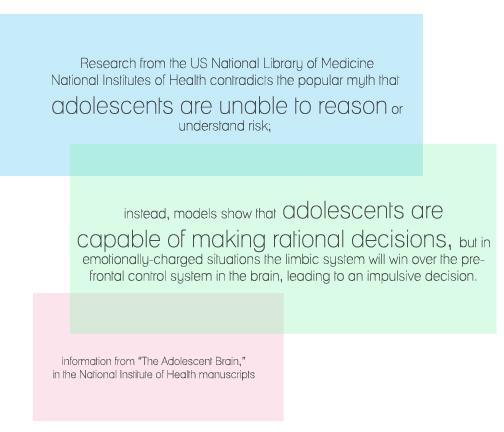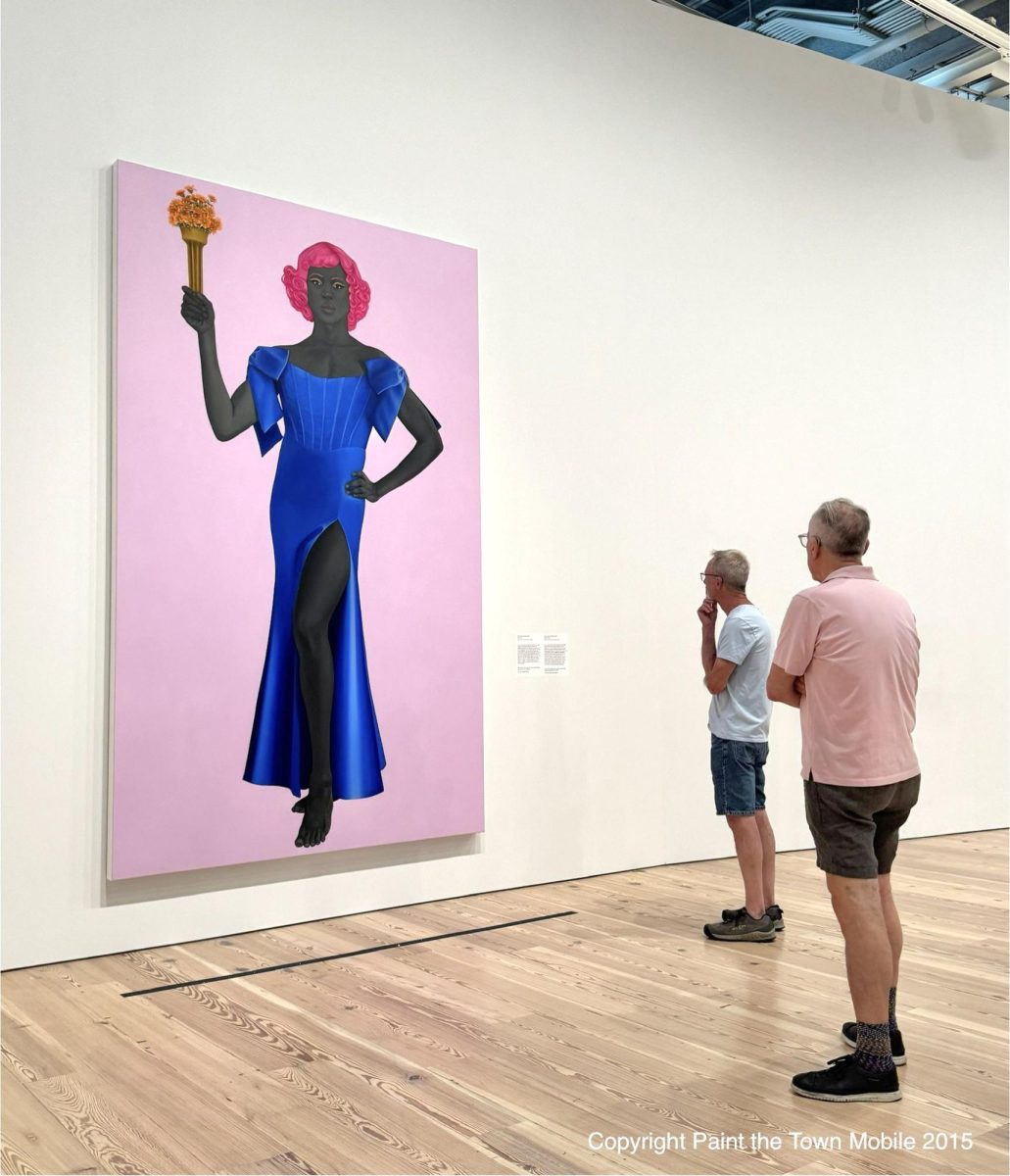
In our society, teenagers are cast as impulsive and reckless beings that are incapable of controlling their emotions and desires. Parents are even made to expect this kind of behavior. Any time we make a mistake, people just blame it on the fact that we are teenagers. It’s an obvious and widely held sentiment: teenagers can’t help but make idiotic decisions.
In my family, it was my sister who set up these expectations. In her adolescent years she spiraled into reckless behavior, and the more impulsive she became, the harder she was to stop. She constantly lashed out at my mother and ran away from home multiple times. She was the embodiment of the stereotypical teenager, and my parents bought into it. They began blaming her behavior on her age, not who she was.
Now they turn to me, as I reach my peak adolescent years, to see how I will carry on her legacy of reckless behavior. To their surprise, I have not been inclined to this behavior. It’s not as if I have never been tempted to make bad decisions, everyone has, but I have not acted on them like my sister did. Our society does much of the same thing as my parents. They take crazy and abnormal stories of youth and make it into the stereotype of a teenager. They forget to factor in individual identities.
This idea has been around for centuries, even in Shakespearean times. This sentiment is understandable in his time, when stereotypes in race and gender were frequent, but we are in the 21st Century. We have long since decided that stereotyping is wrong. So I must ask: How can this be so? How can teenagers still be reduced to this one character?
In recent times, with new technologies emerging every day, the knowledge on what exactly happens within a human brain is becoming more and more accessible. One of the key factors being studied is how a brain makes the transition between its childhood years and adulthood. This research has revealed a much more complicated image on how brains develop, with a lot more going on in the adolescent brain than previously thought.
Teenagers are adults in some ways, but are still children in others. This research has just given more fire to the raging stereotype in our culture. Now there is even scientific evidence for it. People can just point to the brain scans and say, “So this is why teenagers act so impulsively. It’s right there in the scans.”
However, scientific evidence does not make a stereotype acceptable. It is not okay to take stories like my sister’s and use it to make a gross generalization on teenagers. For every horror story of teenage recklessness, there is another that shows teenage ingenuity. For every teenager who is involved in a drunk driving accident, there is another who makes the decision to be the designated driver at a party. Young adults like Malala Yousafzai, the young Pakistani girl who doubles as an education activist, make great contributions to our world. The stereotype that teenagers are completely ruled by emotions and hormones needs to stop.






